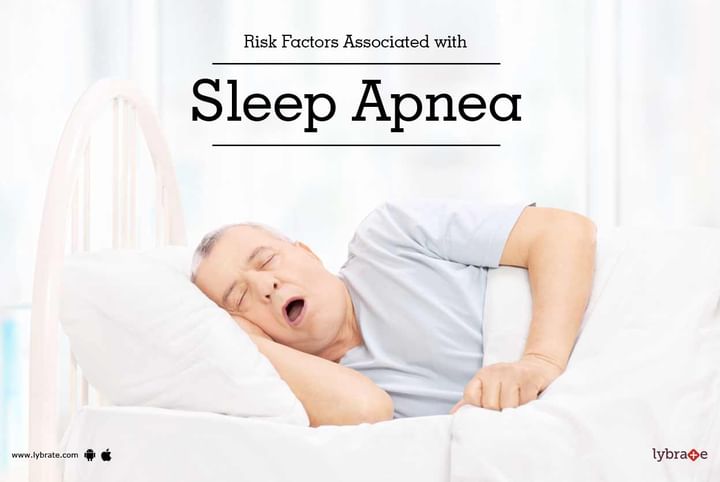Get the App
For Doctors
Login/Sign-up
Last Updated: Jan 10, 2023
BookMark
Report
Risk Factors Associated with Sleep Apnea
Sleep apnea is a disorder which is characterized as interruptions in breathing when you are sleeping. These interruptions or pauses in breathing usually last for about 10 to 20 seconds and may be repeated over 100 times alongside the duration of your sleep. This condition leads to poor sleep resulting in drowsiness, fatigue and poor concentration throughout the day.
Sleep apnea can be classified as:
- Central sleep apnea: Central sleep apnea impairs the central nervous system wherein the brain fails to control muscles which regulate breathing while you sleep.
- Obstructive sleep apnea: This type of sleep apnea occurs when the soft tissues present in the back of the throat block the airway and thus resulting in loud snoring.
Signs and symptoms:
The various signs and symptoms of sleep apnea are
- Loud and chronic snoring during sleeping
- Interruptions in breathing
- Shortness of breath during sleep
- Fatigue during the day
- Choking and gasping during sleep
- Extreme irritability and drowsiness
- Experiencing headaches in the morning
- Impaired concentration and forgetfulness
- Chronic sore throat and dry mouth
- Depression
The various risk factors for sleep apnea are:
- If you are overweight
- If you are male
- If you are over the age of 40
- If you have a large tongue and tonsils
- If someone in your family has sleep apnea
- Nasal obstruction due to sinus problems
There are certain prevention measures to control sleep apnea, they are:
- Limit smoking: Smoking may cause you to retain fluid in the throat which contributes to sleep apnea.
- Exercise: You should exercise regularly to keep off weight as being overweight increases the chances of getting affected by sleep apnea.
- Schedule your sleep: You should get enough sleep every day so that your body is refreshed and revitalized. Getting enough sleep, thus helps in preventing sleep apnea. If you wish to discuss about any specific problem, you can ask a free question.



+1.svg)
